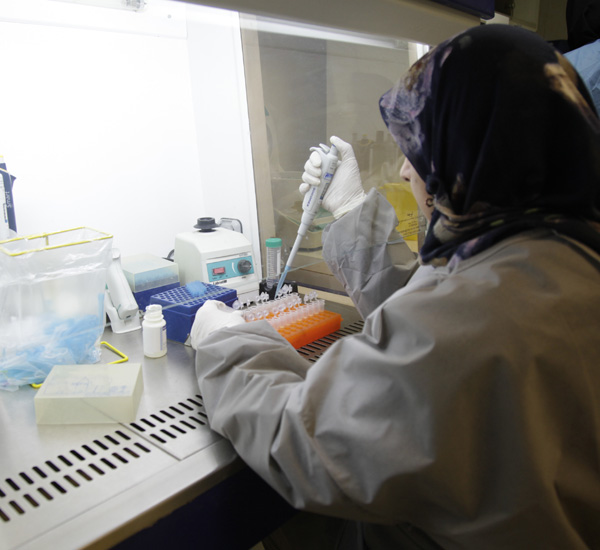WHO provides support to the Ministry of Health and Medical Education in expanding health services and improving laboratory, information, and surveillance systems for communicable diseases through an integrated approach. From early 2020, the COVID-19 pandemic has caused widespread health and socioeconomic disruption, thereby posing a threat to national and global health security.
WHO also plays an important role in expanding cross-sectoral collaboration for controlling communicable diseases, including prevention of antimicrobial resistance through the ‘One Health’ approach, conducting risk assessment and mitigation, and also updating, monitoring and evaluating national strategic plans, including activities for updating national guidelines, capacity-building, innovation and knowledge sharing.
The Islamic Republic of Iran is striving to make progress towards universal health coverage (UHC) to provide equitable access to quality health services for all people residing in the country.
Under WHO’s Thirteenth General Programme of Work (GPW 13), which defines WHO's strategy for the period 2019–2023, we aim to contribute to:
Universal health coverage
Improved access to quality essential health services (outcome 1.1)
Improved availability of essential medicines, vaccines, diagnostics, and devices for primary health care (outcome 1.3.)
Healthier populations
Reduced risk factors through multisectoral approaches (outcome 3.2)
Health and well-being realized through adoption of a Health-in-All-Policies approach and healthy setting interventions (outcome 3.3)
Better supporting countries
Strengthened country capacity in data and innovation (outcome 4.1)
Who we are
The WHO communicable diseases programme provides support to Islamic Republic of Iran in laboratory and diagnostics, antimicrobial resistance (AMR), epidemiology, HIV/STI prevention and treatment, prevention and control of vector-borne diseases, and vaccination and vaccine safety.
What we do
In collaboration with the Ministry and other health authorities and partners, we work to:
- scale up and integrate communicable disease services and interventions at all levels of the primary health care system to achieve UHC;
- support development and updates of national policies, strategies, and operational guidelines for communicable diseases in line with global frameworks;
- increase access to new vaccines, medical devices, and essential medicines for communicable diseases;
- implement a joint multisectoral AMR action plan;
- improving infection prevention and control measures to reduce incidence and burden of AMR;
- strengthen cross-sectoral and cross-border collaboration for control/elimination of communicable diseases;
- facilitate engagement with the private sector and civil society organizations to link hard-to-reach key populations at higher risk of communicable diseases;
- build capacity in preventing communicable diseases by developing integrated surveillance systems harmonized with national information systems and global standards.



